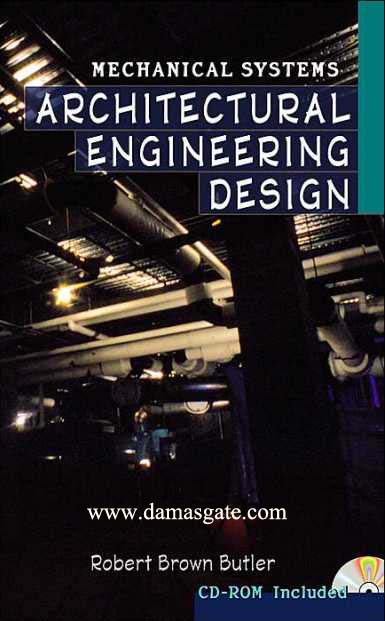Architectural Engineering Design

1.A. GENERAL
This publication includes two Æ (architectural engineering) handbooks,
this one dealing with the design of mechanical systems and related
components, the other doing the same with structural systems. Each volume
also contains an interactive CD-ROM of its algebraic formulas that
enables each equation to be solved quickly and accurately by computer.
These handbooks and their accompanying disks contain architectural
engineering information and algebraic equations for conceptualizing,
selecting, and sizing virtually every functional component in any kind
of building, from shed to skyscraper, anywhere in the world. With these references,
an Æ designer can quickly determine whether a functional component
is large enough to be safe for its intended purpose, yet not so large
that money is wasted. Certainly these volume-cum-disks are thorough compilations
of technical knowledge acquired from academic study, official
research, and established office practice. But they also contain countless
practical, insightful, and even a few horrifying anecdotes gleaned from
construction experiences, water-cooler dissertations, trade magazine edifications,
and numerous other in-the-field events as they relate to our
species’ ongoing need for safe and comfortable shelter.
These publications also emphasize the latest computerized controls
being incorporated into every functional aspect of today’s buildings.
Today’s Æ designers cannot claim to be up with the times if they do not
understand TBM systems. This includes the incredible production and
energy savings they can bring, the problems they create, and the solutions
today’s engineers are evolving to eliminate the latter.
These volumes also stress that a vital aspect of any functional component’s
design involves adequate access for maintaining it after construction;
because
it can be said that no matter how good any part is, it
always fails eventually. Architects may think, and rightfully so, that maintenance
is not their problem; but accessing maintenance is no one else’s
problem. More than ever before, occupants of modern buildings are prisoners
of maintenance; and today’s Æ designers should be an ally to these
Download
*